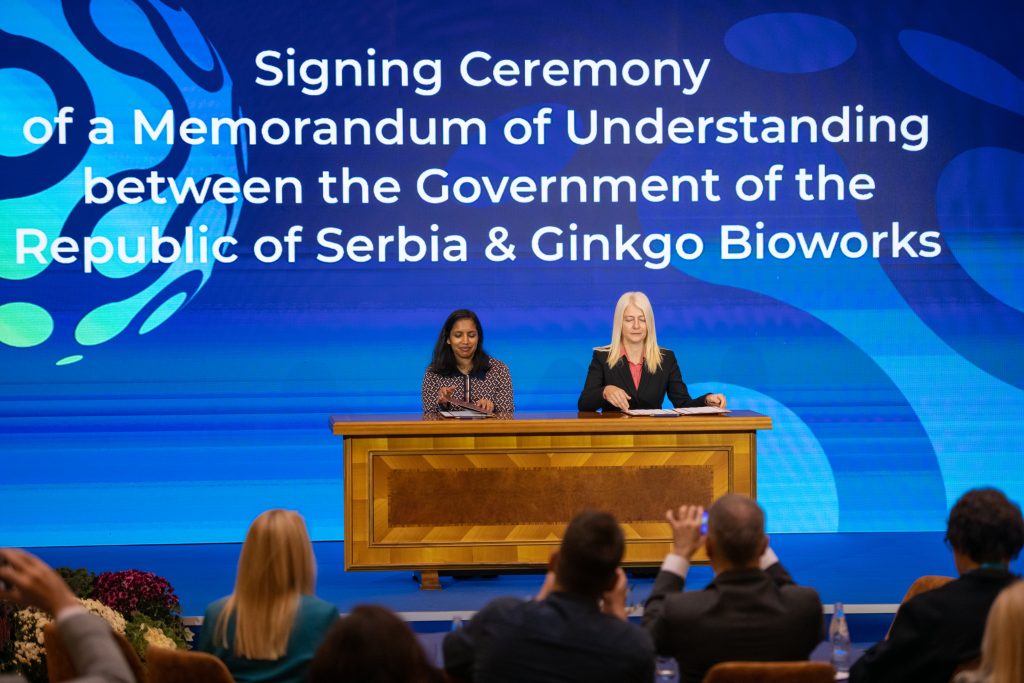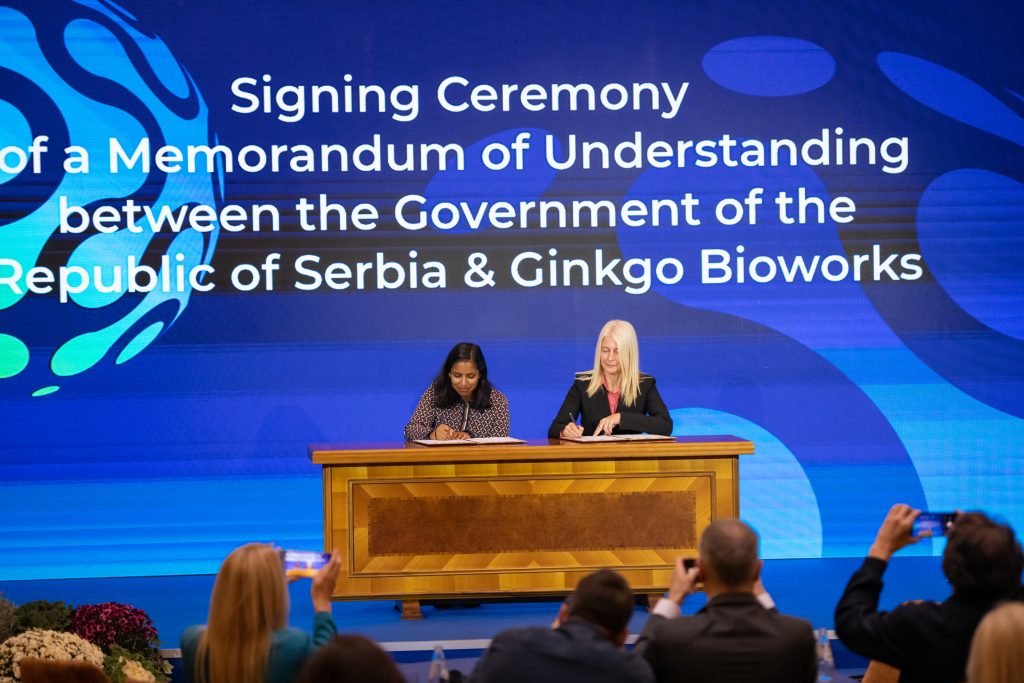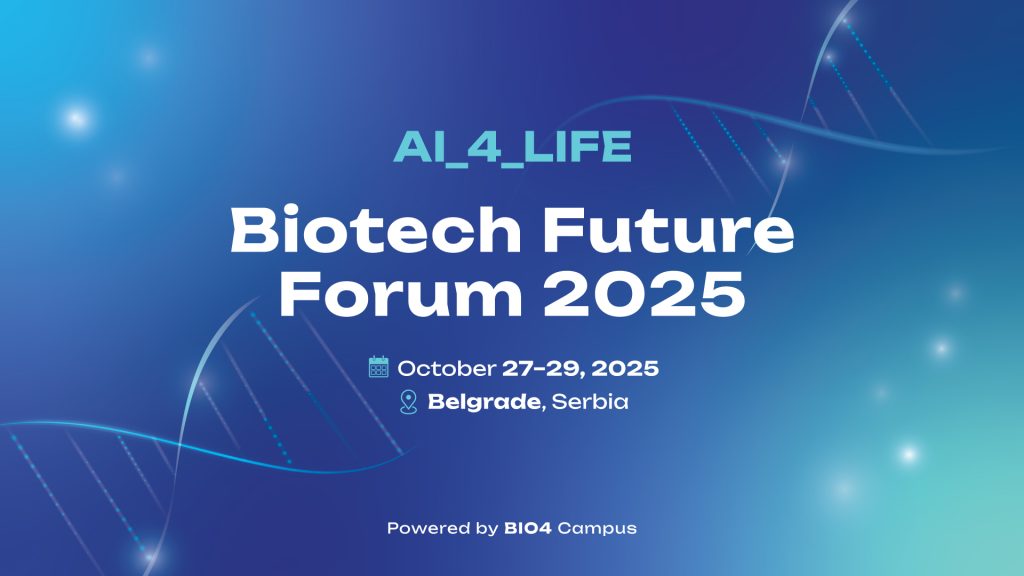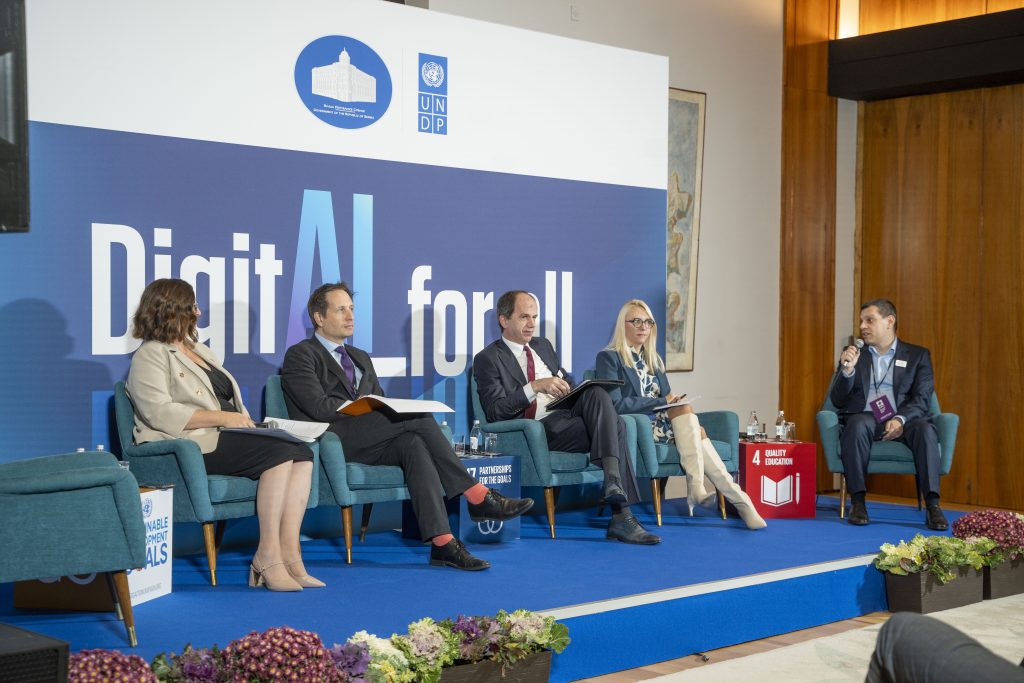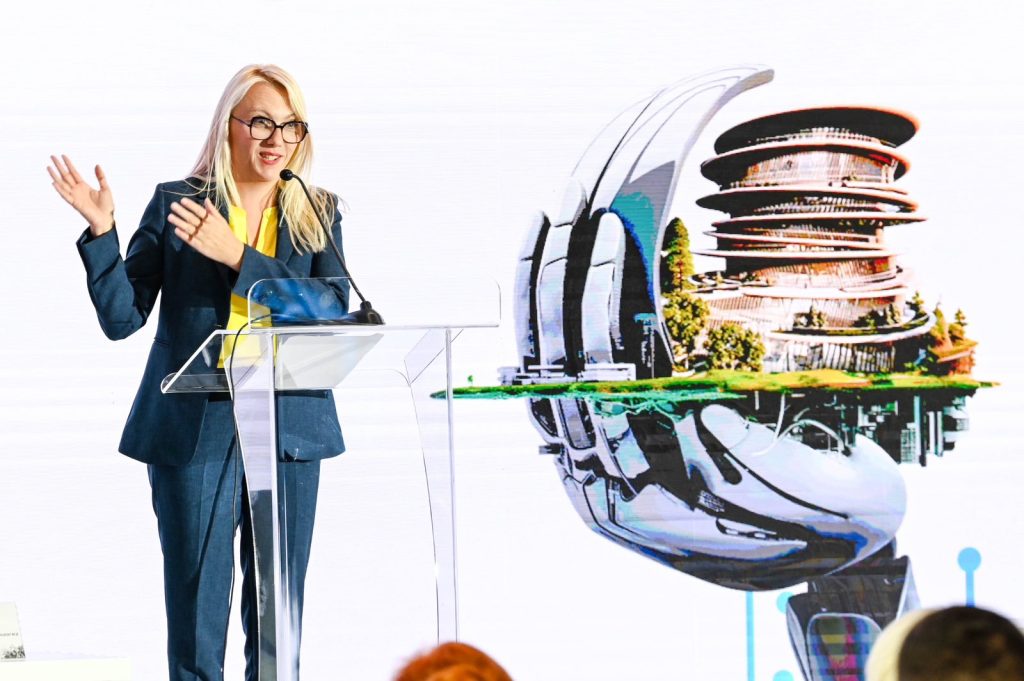Ginkgo Bioworks, which is building the leading platform for cell programming and biosecurity, and the Government of Serbia today announced that they have entered into a Memorandum of Understanding (“MoU”) with the intent of collaborating in support of Serbia’s bioeconomy vision. The Memorandum was signed at the iinternational conference Biotech Future Forum, organized by C4IR Serbia in cooperation with the World Economic Forum and UNDP, with the support of BIO4 Campus.
Under the planned partnership, Ginkgo and the Serbian Ministry of Science, Technological Development and Innovation will work to establish a Startup Accelerator that leverages Ginkgo’s horizontal platform and extensive expertise to create and support Serbian companies building with biology. Within this Accelerator, startups will be able to leverage Ginkgo’s end-to-end R&D services to quickly progress on projects that would otherwise require substantial resources and infrastructure.
Startups and larger companies alike can take full advantage of Serbia’s new BIO4 Campus, the key initiative that puts Serbia on the global life sciences map as a new bioeconomy hub in Europe. The BIO4 Campus initiative already gathers more than 1,000 PhD scientists from 17 scientific institutions, and the Campus itself will open in 2026. BIO4 brings together the research centers of companies active in biomedicine, biotechnology, bioinformatics and biodiversity. MoUs on mutual cooperation have already been signed with the likes of AstraZeneca, BGI, Merck (known as MSD in Europe), Pfizer, Roche, SK Biosciences, Frontier Biopharm, Swiss Rockets and Takeda, with more in the works.
Within the envisioned collaboration, companies on the BIO4 Campus will have the opportunity to take advantage of incentives to access Ginkgo’s platform. By offering flexible services, Ginkgo aims to be the end-to-end synthetic biology R&D partner for companies at BIO4 exploring solutions in pharmaceuticals, food and agriculture, industry, and specialty chemicals. Companies at BIO4 will have opportunities to engage Ginkgo staff and access Ginkgo expertise on site.
Further, under the MoU, Ginkgo and the Government of Serbia will also explore partnerships to develop and implement new biomonitoring capabilities in Serbia. For example, the planned partnership will support capacity-building and biomonitoring throughout Serbia’s public health sector, including working to implement innovative pathogen monitoring programs at various strategic nodes, such as ports of entry and animal agricultural settings.
Serbian Minister of Science, Technological Development and Innovations, Dr. Jelena Begovic, said, “This partnership additionally strengthens the BIO4 Campus as an attractive and dense R&D site in the European landscape. Having Ginkgo, as one of the most advanced biology companies in the world, in the BIO4 ecosystem means that all other stakeholders can benefit as well. Building on Serbia’s already well-regarded AI and digital engineering talents, the government recognizes economic and health benefits of the new biorevolution that is unfolding, and strongly supports the vision to become one of the European leaders in the field. On this occasion, warm invitation is extended to other companies as well, that want to accelerate their R&D efforts and benefit from the BIO4-Ginkgo partnership.”
“BIO4, and the vibrant ecosystem coming together in Serbia, is an extraordinary community with a shared motivation to use biology to address major health, societal, and environmental challenges,” said Austin Che, Co-Founder and Head of Startup Innovation at Ginkgo Bioworks. “Countries around the world are recognizing the transformative power of synthetic biology as a strategic technology and the importance of pathogen monitoring for preparedness. At Ginkgo, we are proud to be the partner of choice for these forward-looking governments and are excited to help accelerate R&D and create momentum for companies building products with biology.”
SOURCE: Ginkgo Bioworks
